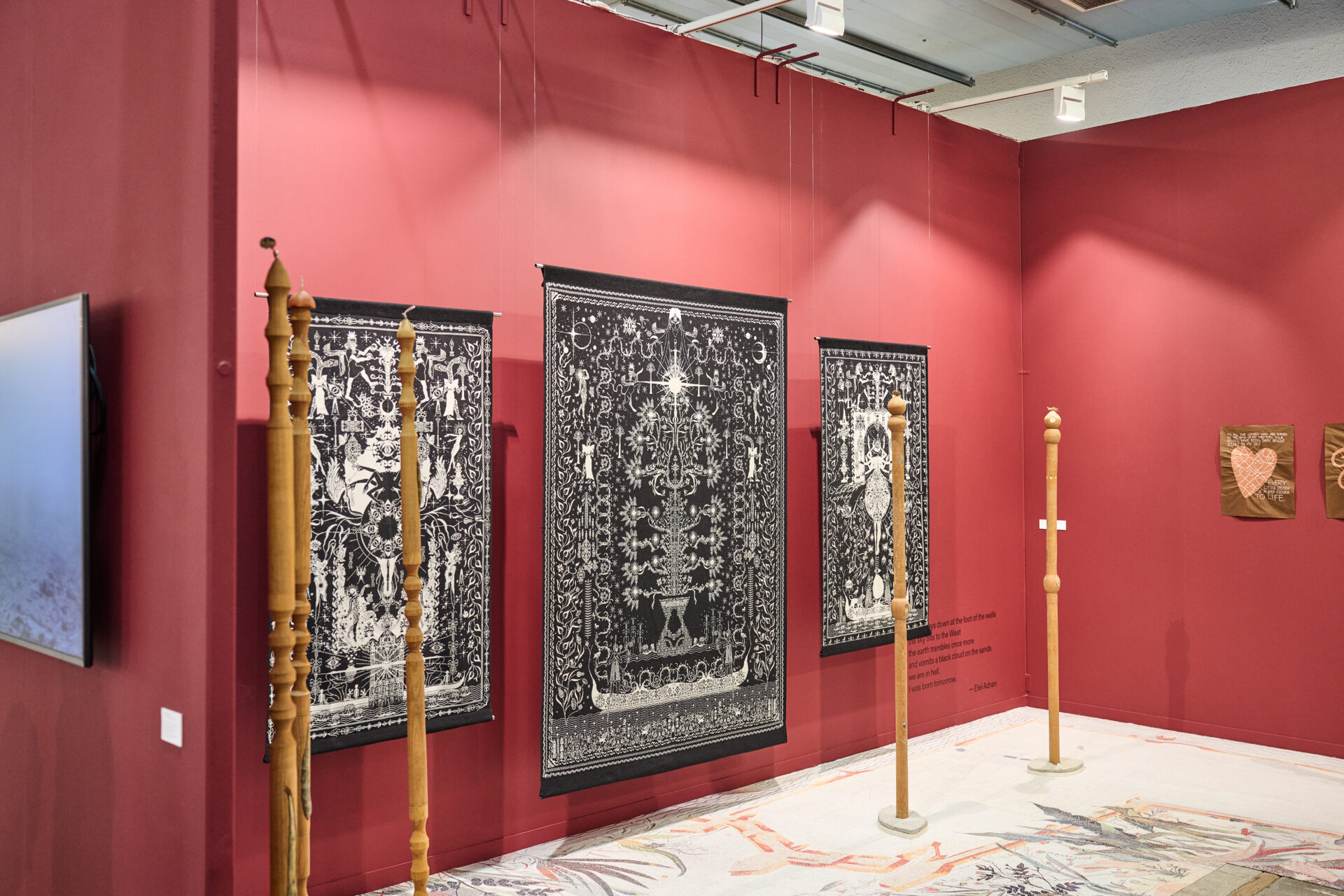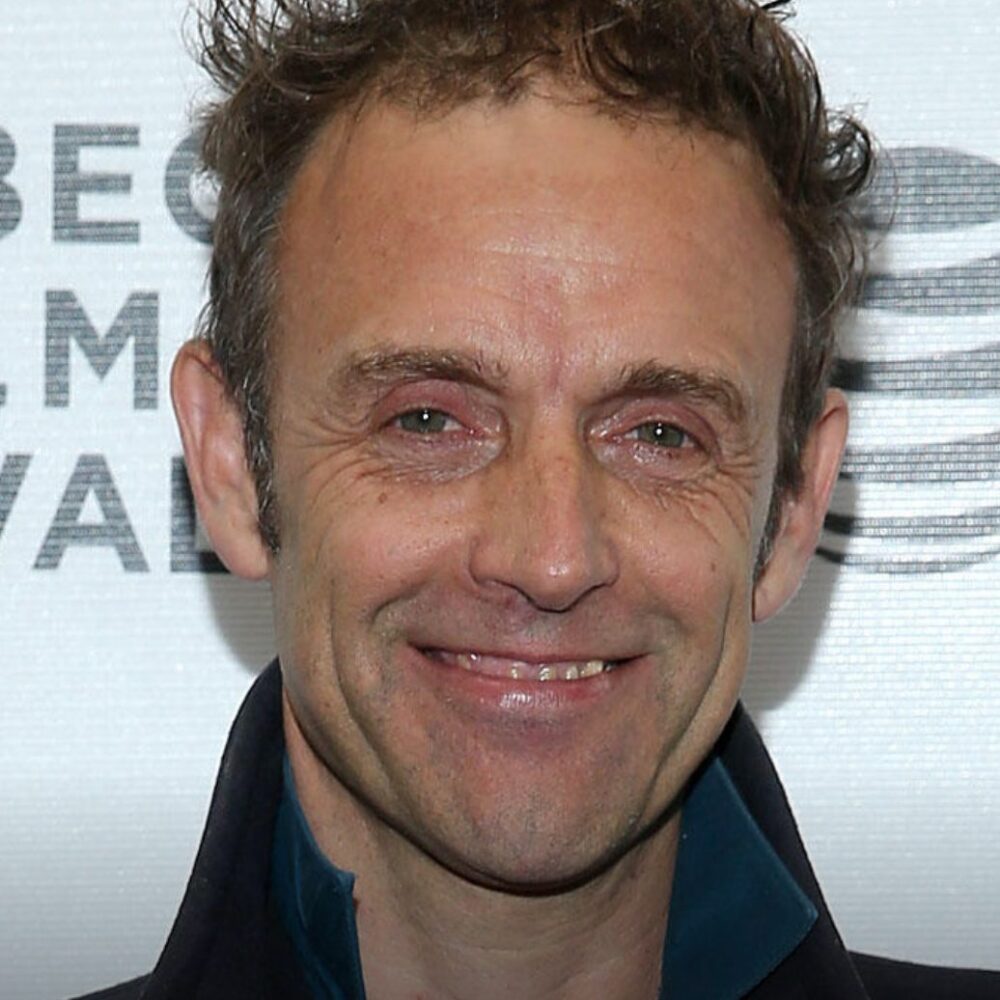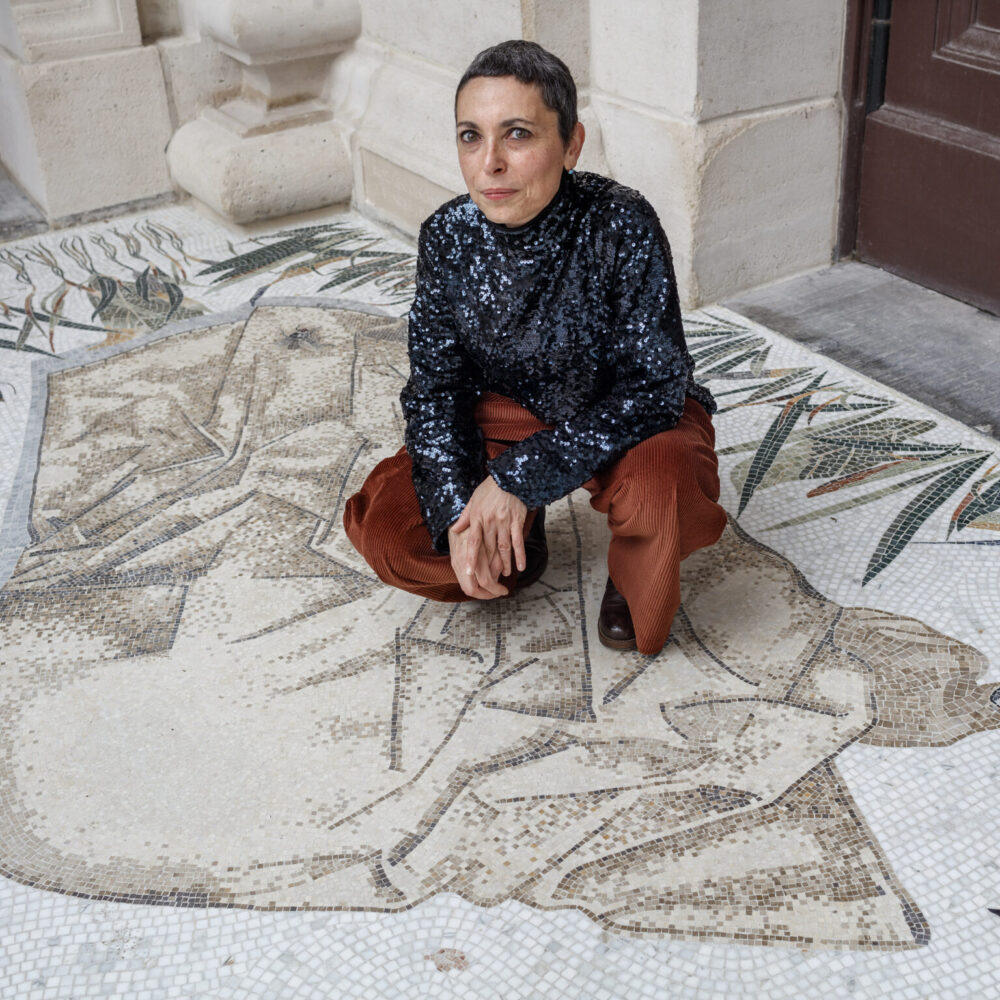main partners

Installation view of SOFAM booth with Pomona Art Fund at Art Brussels 2025
The Pomona Art Fund
A SOFAM initiative
SOFAM is proud to present the inaugural Pomona Art Fund grantees at Art Brussels 2025.
The Pomona Art Fund Grants aim to provide artistic talent in Belgium with opportunities to develop their best work.
For the 2025 Pomona grants, a prestigious jury selected three Belgium-based visual artists, each in a distinct category: Hussein Shikha (emerging), Marie Zolamian (midway) and Johan Grimonprez (established).
Each laureate was then invited to grant a further bursary to an artist or arts organisation. Shikha and Grimonprez nominated fellow artists Sadrie Alves and Hilke Walraven, respectively. Zolamian nominated the artists’ rights organisation Fédération des Arts Plastiques (LaFAP).
The Pomona Art Fund booth at Art Brussels is curated by Antony Hudek. It will showcase recent work by each artist grantee as well as information on LaFAP.
A SOFAM initiative, Pomona Art Fund is managed in cooperation with the King Baudouin Foundation and supported by generous individuals and organisations.

Johan Grimonprez
Johan Grimonprez (b. 1962, Roeselare) is internationally renowned for his films, which are composed of documentary material, downloads, historical archives, home videos, snippets of Hollywood films, news footage, and commercials. His work straddles the line between art and cinema, documentary and fiction, practice and theory.
With the help of the POMONA grant, Grimonprez is embarking on the development of his next film project: The Multispecies Parliament. This project is Grimonprez’s attempt to find new, joyful ways of storytelling and to explore how we are interconnected while choreographing new narratives to share. Not as victims of the future paralyzed by dystopian nihilism, but in order to gather untold stories generated by asking better questions. As writer Rebecca Solnit suggests, “These stories are our tools for the wonderful possibilities in the terrible reality we face.”
Grimonprez’s curatorial projects have been exhibited at museums worldwide, including the Hammer Museum, Los Angeles; the Pinakothek der Moderne, Munich; and MoMA. His works are in the collections of Centre Georges Pompidou, Paris; the 21st Century Museum of Contemporary Art, Kanazawa; and Tate Modern, London.
His feature films include dial H-I-S-T-O-R-Y (1997, in collaboration with novelist Don DeLillo, selected by the Guardian as one of the “30 great works in the history of video art”), Double Take (2009), and Shadow World (2016). Traveling the main festival circuit from the Berlinale to Sundance, they garnered several Best Director awards.
Grimonprez also published several books, including Inflight (2000), Looking for Alfred (2007) and a reader titled It’s a Poor Sort of Memory that Only Works Backwards (2011) with contributions by Jodi Dean, Tom McCarthy, Hans Ulrich Obrist, and Slavoj Žižek.
His latest feature film, Soundtrack to a Coup d’Etat, premiered at the 2024 Sundance Film Festival, where it won the Cinematic Innovation Award. The film also received the Persistence of Vision Award at SFFilm. It has recently been nominated for an Academy Award® for Best Documentary Feature at the 97th Academy Awards.

Marie Zolamian
Marie Zolamian (b. 1975, Beirut) is a multidisciplinary artist of Armenian descent who grew up in Lebanon until the age of fifteen. In 1990, she fled her homeland with her family and settled in Belgium.
Through various media, Marie Zolamian explores themes of uprooting, coexistence, and otherness. She works with visual sequences across different media, starting from painting. She describes her practice as “an experimental documentary form of fictional ethnology.” She intends to use the POMONA grant to invest in a core aspect of her artistic practice—a workspace that is as important to her as her studio, her library. Marie Zolamian has a strong passion for art books and books written by fellow artists. These objects open her to unique worlds and an endless genealogy.
Marie Zolamian has exhibited at venues including Bombon Projects Gallery, Barcelona (2024); Jester/CIAP, Genk (2022); Galerie Nadja Vilenne (2019 and 2016); Mu.ZEE, Ostend (2018); Künstlerhaus Bethanien, Berlin (2013); as well as group exhibitions at BPS22, Charleroi (2023), and Wiels, Brussels (2021).
One of her most significant public works is a 76 m² mosaic for the peristyle of the KMSKA (Antwerp, 2022). In 2023, she received the Ianchelevici Prize for her architectural integration at the KMSKA. Zolamian is currently showing her paintings in an exhibition with Witold Vandenbroek at Whitehouse Gallery in Brussels, on view until 8 March.

Hussein Shikha
Hussein Shikha is a multidisciplinary artist, graphic designer, writer, and researcher. His work encompasses experimental film, animation, textiles, and interactive installations. Hussein uses the manipulation and transformation of the South Iraqi carpet (with all its philosophies) as a starting point to understand art and design from both Eastern and non-Eastern perspectives. In so doing, he explores possible shifts toward a more inclusive and less Eurocentric perception of art and design.
According to Shikha, the grant will help him contribute to real intercultural insights through his work. He aims to share his work in a way that is both culturally and socially aware, transcends simplistic categorizations, and fosters dialogue and empathy across cultural boundaries. By integrating heritage with digital media, Shikha seeks to create a tool to preserve and revitalize this knowledge. The loss of symbolism and textile knowledge is not only a problem in Iraq but also in Belgium, albeit on a different scale.
Hussein Shikha was born and raised in Iraq and moved to Antwerp in 2009. He obtained a Master’s degree in Fine Arts from the Royal Academy of Fine Arts Antwerp and an Advanced Master of Research in Art and Design from Sint Lucas Antwerp. He has presented his work at BAK, Utrecht; Nieuwe Instituut, Rotterdam; TextielMuseum, Tilburg; Het Bos, Antwerp; Kunsthal Gent, Ghent; and Kunsthal Extra City, Antwerp. He has participated in residencies at the Frans Masereel Centre; Z33, Hasselt; Morpho, Antwerp, and will join the 2025 cohort of the Jan van Eyck Academy.
Sadrie Alves
Sadrie Alves approaches text, performance, drawing and sculptures as symbiotic elements of narrative and storytelling, emphasising the voice and its agency. She weaves together intergenerational curses, family gossip, syncretic elements, lullabies, folklores and obscured histories by means of an auto-ethnographic and transdisciplinary approach. Alves visits different temporalities to re-write and politicize them through a simultaneously critical and loving lens. Her interest in hybridity is driven by an urgency to articulate complexities of identity and ancestrality while transcending dualities. Her work draws on oral stories and folklore, and the beings that inhabit them. Guided by the words of Anzaldua, she looks for the crossroads, neither here nor there, betwixt and between.
Currently living in Antwerp, Alves was born in Brasília in 1997. Age 18, she moved to Belgium to investigate her paternal Flemish cultural background and to pursue an education. The balancing act between two continents and families shaped her, often confused her, but also challenges and inspires her work. In 2019, Sadrie Alves graduated from Sint-Lucas Antwerp as a Master of Fine Arts. She developed various workshops and masterclasses in institutions such as Antwerp’s Royal Academy of Fine Arts, the University of Antwerp and Stormopkomst. She has had residencies at MORPHO, Frans Masereel Centrum, deSingel and Petrohradská kolektiv and Fluid Materialities (Trier, DE) supported by the EU and Goethe Institut.
Hilke Walraven
Hilke Walraven likes to study her immediate surroundings, and accidental happenings that occur there by chance. In her observations, she concentrates on everyday actions and rituals that have become so self-evident that they are all but invisible. In her installations, she captures such actions, and especially the hiccups they contain, as a person who stumbles interrupts the automatisms of walking. She is fascinated by the ‘coincidental’, and allows herself to be led by it. In her recent installation ‘Wooden days’ she became inspired by the house opposite her home, the notes her downstairs neighbour slips under her door, and the garden surrounding her studio, where there grew ash, beech and cherry trees. With these types of wood, she turned poles, in which she has hidden pistachio husks, shopping lists, tiny drawings and references to the hotel in which Walraven works. As a receptionist, she gathers stories of guests that stay in the hotel, or for example hair pins that guests leave behind in their room, which remind the artist of dancing legs.
Hilke Walraven (b. 1994) studied Fine Arts at the Utrecht School of the Arts. Her work has been exhibited in several group and solo exhibitions in Amsterdam, Utrecht, Haarlem, The Hague, Nijmegen, and Den Helder, as well as in Buenos Aires (Argentina). In 2022, she moved to Ghent to pursue her Master’s training in Fine Arts. She graduated in June 2024 and has since lived in Ghent, working between Utrecht and Ghent.
LaFap
La Fédération des Arts Plastiques (LaFAP) is an association that aims to unite and represent workers in the visual arts in the Wallonia-Brussels Federation (FWB) to advocate for their interests. It campaigns for an adequate professional status for artists, fair compensation for artistic work, and increased government funding for the sector.
LaFAP is open to all workers in the visual arts, regardless of their status or the stage in their career. Today, LaFAP plays a crucial role in defending a sector that has long been underrepresented and, as a result, has suffered from inequality, especially in terms of social rights and funding. The activities are based on four main pillars: coordination, information, representation, and the formulation of proposals. Recent publications include a general charter of best practices, and an inquiry into the underrepresentation of women artists and gender minorities in the art world.
About Pomona Art Fund
The Pomona Art Fund, managed by the King Baudouin Foundation, is an initiative of SOFAM.
SOFAM is a cooperative society governed by artists, non-profit, and since 1979 has specialized in copyright for visual artists. It is authorized to act as a collective management organization for the collection and distribution of resale rights. SOFAM places fair compensation for creative work and the interests of artists at the center of all its activities.
SOFAM advocates for the copyright and interests of visual artists: painters, sculptors, photographers, illustrators, graphic designers, and other visual creators. The core mission involves collecting and distributing collective rights. These are payments set by lawmakers for the benefit of authors as compensation for the copying and use of their works, including in businesses, education, and libraries.
The main reason an artist joins a collective management organization is that they can receive collective compensation easily, which they cannot obtain in any other way.
SOFAM firmly believes that targeted actions can serve as a lever for artists and can contribute to the flourishing of the entire artistic sector in Belgium.
Learn more about Pomona and how people can contribute here.

